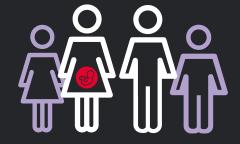Valproate and pregnancy awareness survey 2019
Are you a woman or girl under the age of 55 who is taking, or has taken, sodium valproate since 1 August 2018? We want to find out how much women and girls of childbearing age know about the risks associated with the epilepsy medication, if taken during pregnancy.
For every baby exposed to sodium valproate during pregnancy, there is up to a 40 per cent risk of the baby being born with a physical or neurodevelopmental disability.
Valproate and pregnancy awareness survey 2019
We would be grateful if you could fill in our survey at the link below to help us assess:
- how effective new regulations around prescribing the drug are;
- whether women and girls are aware of the risks;
- and how they feel about the pregnancy prevention programme.
Take the valproate and pregnancy survey
New regulations
New regulations around prescribing sodium valproate (also known as Epilim, Episenta, Epival, Convulex, Depakote, Kentilim, Orlept, Syonell, Valpal and Valproic acid) were introduced by the Medicines and Healthcare products Agency in April 2018.
The survey has been launched by the three charities Epilepsy Society, Epilepsy Action and Young Epilepsy. The survey will run for four weeks until Tuesday 19 November 2019.
You should never stop taking sodium valproate without consulting your doctor.
Sodium valproate
Sodium valproate is an epilepsy drug prescribed for all seizure types including absence, myoclonus and tonic clonic seizures. New regulations have been introduced by the Medicines and Healthcare products Regulatory Agency (MHRA) around the way in which the drug, sodium valproate is prescribed to women and girls of childbearing age.
Campaigns
Our campaigns team lobby government and decision-makers on the issues that matter to people with epilepsy. From safer medicines for pregnant women to the dangers of online trolling, and from medicines supply to public transport access, we raise awareness of the daily challenges facing people with epilepsy.
Starting a family
Most women with epilepsy do not have any change in their seizure frequency during pregnancy. However you might find that your seizures are better controlled during pregnancy, or that you have more seizures than is usual for you.



